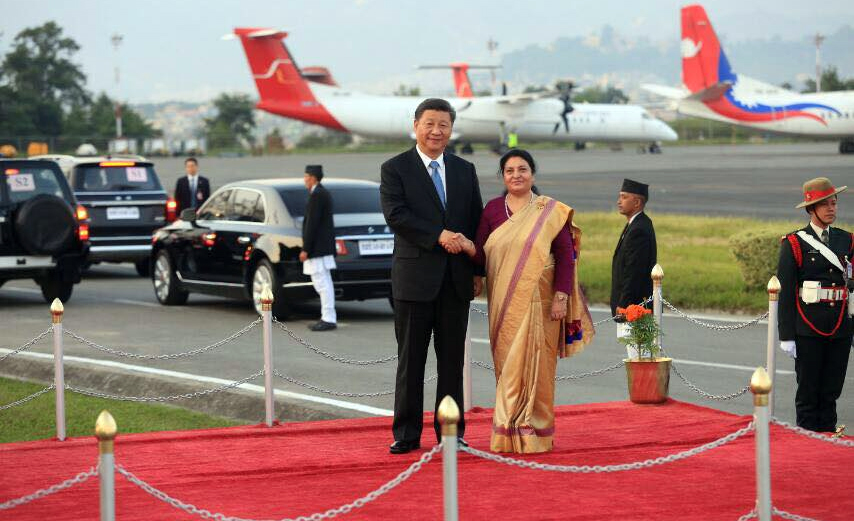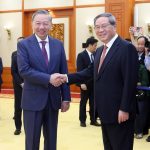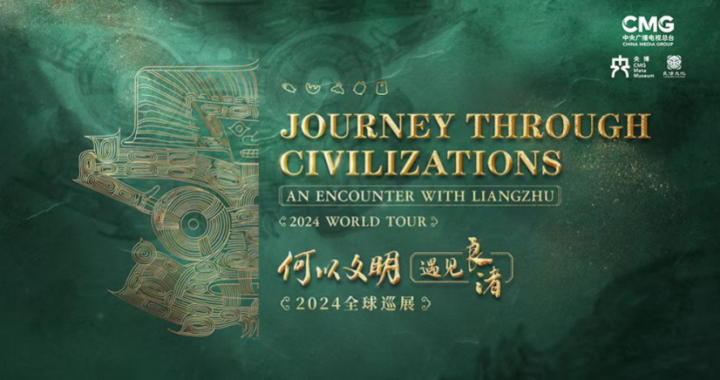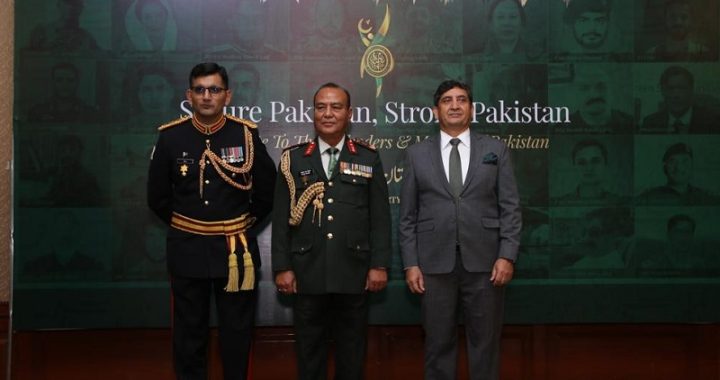Chinese President Xi Jinping’s visit to South Asia

-
Hiranya Lal Shrestha
Chinese President Xi Jinping’s sojourn to South Asia in October 2019 bought China and South Asia closer. Chinese President Xi Jinping’s Successful Nepal state visit on October 12-13, 2019 became most successful and it took the friendship between two countries to a new height. Nepal government leaders, leaders of opposition parties and people from different walks of life, extended a warm welcome to the distinguished guest. President Xi’s commitment to help turn “landlocked Nepal” into a “land-linked country” by boosting connectivity between two countries impressed deeply to the Nepalese people and Nepal took China as a reliable friend and development partner. Xi wraps up Nepal visit with 20 pacts to further enhance the bilateral relations that have remained cordial since both sides established diplomatic relations in 1955.
In joint statement between Nepal and China, it stated that the leaders of the two countries reached broad understanding through in-depth exchange of views on belated relationship and regional and international issues of common concern, Nepal and China took the Belt and Road Initiative as an important opportunity to deepen mutually – beneficial cooperation in all fields in a comprehensive manner, jointly pursue common prosperity and dedicate themselves to maintaining peace, stability, and development in the region. This bilateral relationship between Nepal and China has entered into a new phase.
Mutual Support
Nepal and China agreed to respect each others’ independence, sovereignty and territorial integrity, respect and accommodate each other’s concerns and core interests, the two sides will advance to good neighboring policy and deeper overall cooperation in a win-win manner, so as to achieve mutual benefit and pursue stability and development together, The Nepali side reiterated its firm commitment to “one China” policy, acknowledging that Taiwan is an inalienable part of the Chinese territory and Tibet in affairs are China’s internal affairs, and the determination on not to allow any anti-China activities on its soil.
The Chinese side reiterated its firm support to Nepal in upholding the country’s independence, sovereignty, and territorial integrity, and its-firm support and respect to Nepal’s social system and development path independently chosen in the light of Nepal’s national conditions.
The Chinese side congratulated Nepal on the historic and epoch-making political transformation and the rapid economic and social development. It believed that the Nepali people would unite as one and keep marching towards the vision “Prosperous Nepal, Happy Nepali”, So as it achieves political stability, social harmony and rapid economic development. The Chinese side expressed willingness to continue interacting with the Nepali side on the experience of governance.
The Nepali side congratulated on the 70th Anniversary of the founding of the Peoples Republic of China and expressed admiration to China’s miraculous achievement in development over the past 70 years and sincerely wished that under the guidance of Xi Jinping Thought on Socialism with Chinese characteristics for a New Era, the Chinese people would keep striving to realize the two-century goals and build China a great modern socialist country that is prosperous strong, democratic, culturally advanced, harmonious, and beautiful.
Mutual support and appreciation of each other’s positions and concerns is the bedrock of the bilateral relationship.
Bult on Several agreements
Chinese President Xi Jinping wrapped up his two-day state visit to Nepal with the signing of 18 memorandums of understanding and to letters as intent. The major pacts include the MOU between the ministry of physical infrastructure and transport of Nepal and the ministry of transport of China on the feasibility study of China – Nepal cross – border Railway project and the MOU between the ministry of Finance of Nepal and China International Development Cooperation Agency on Tunnels construction cooperation. President Xi had said a feasibility study of the trans-Himalayas railway would start immediately and China would support the construction of Kerung-Kathmandu tunnel road. Nepalese people consider Manjusree as a founder of the ancient silk road, who cut the Georges in Chover and drained water in Kathmandu Valley and started a settlement. Like these Nepalese people consider president Xi Jinping as a founder of the modern iron silk road in BRI, framework.
Nepal and China also signed the Agreement on the Boundary Management system. MOU on the exchanges and cooperation on Government capacity building and treaty between Nepal and China on mutual legal assistance in criminal Matters, Nepal- China Border Agreement was concluded between two- countries on October 5, 1961. This time they concluded Boundary management Agreement with contributing to keep our boundary stable, peaceful and free from separatist & criminal activities.
The two sides agreed to strengthen cooperation in various fields of the economy including trade, tourism, and investment capacity of production and improving people’s livelihood so as to promote mutual development. Under the framework of Nepal-China joint commission on Economy and trade, the two sides will establish a working group on investment cooperation and a working group on trade led by secretary/ vice minister-level officials or their designates so as to facilitate bilateral investment and trade.
Nepal will facilitate the Chinese banks to open their branches and other financial services in Nepal with a view to facilitating trade and investment between the two countries, Both sides will bring full play the joint implementation mechanism on Nepal – China cooperation in energy sector, to carry out exchanges and cooperation in the fields of hydropower, wind power, solar power, biomass energy as other kinds of new energy as well as grid systems.
The Chinese side promised to help in the establishment of multidisciplinary Madan Bhandari University for science and technology. The industrial park in the Jhapa district is also progressing under Chinese assistance.
Recognizing the Mount Sagarmatha/ Zinumulangma is an eternal symbol of the friendship between Nepal and China, the two sides will promote cooperation in different fields including addressing climate change and protecting the environment. They will jointly announce the height of the mount President Xi is conscious of the deteriorating global environment and taking steps to mitigate it.
The two sides agreed to promote exchanges and cooperation in education, culture tourism, traditional medicine, media, think-tanks and youth at different levels. Chinese support to make “Visit Nepal year 2020”, is also significant in the tourism sector. Lumbini and Kailash/Mansarober are tourist destinations of global importance.
The decision to the establishment of Nepal’s consulate general in Chendu, Sichuan province of China is significant because of Chendu’s importance in developing as a hub of BRI, Trans-Himalayan corridor linking China and South Asia.
Party to Party Relations
The Communist Party of China (CPC) led by President Xi Jinping is conducting a fraternal relationship with the Communist Party of Nepal (CPN) and friendly contact with other non-communist parties During Nepal visit president Xi Jinping interacted with the top leadership of CPN. He received warmly to the leader of the main opposition Nepali Congress (NC) president and formal Prime Minister Sher Bahadur Deuba.
During interaction with CPN, President Xi stressed the importance of integrity and good governance with the Communist party to run the government and advised them to work towards fulfilling the aspirations of the people.
While meeting with NC leader Sher Bahadur Deuba, president Xi recalled a good relationship between two parties since B.P Koirala in the 1960s. He invited Deuba to visit China in his continent time. Both the ruling and opposition parties of Nepal are happy with President Xi.
China and South Asia
China have common land borders with 5 South Asian countries, Afganistan, Pakistan, India, Nepal and Bhutan. Srilanka and Maldives is linked with China via 21st century Maritime Silk Road. China is a dialogue partner of SAARC.
China invited Pakistan prime minister Imran Khan to Beijing last week, conducted in-depth dialogue between two leaders Xi and Imran. They decided to consolidate CEPEC.
Next day president XI Jinping visited Chennai and met Indian prime Minister Modi. This is the second summit of Uhan dialogue. They decided that if there is a difference, they won’t turn it into dispute and avoid confrontation. To make the 21st century as the Asian century, they felt need better cooperation and understanding between China and India.
They are united against US-imposed trade war and trying to develop multi-polar world cooperation between BRICS countries. Shanghai Cooperation organization is another forum, where they are together against terrorism, extremism, and separatism. China also likes to see SAARC reactivated.
Concluding Remarks
Nepal government and political parties demonstrated unity in welcoming the Chinese leader Xi. Jinping. He is conscious of differences of the political systems of China and Nepal, the Chinese system is cooperative party systems, whereas the Nepalese system is the multiparty competitive system. So he behaved well both will ruling and opposition parties accordingly. The growing sister city relationship between Chinese and Nepalese is also a landmark in developing people to people relations between the two countries.
President Xi’s visit has contributed to cement the age-old and problem-free ties between the two countries. He projected China as a civilization state; Buddhism and Confucism are foundations of our old and continued civilization relationship. His approach towards modernization with cultural identity is unique and inspiring to Nepal also. It will contribute for Asian Civilization reawakening and solidarity between peoples of the continent.
Nepal is in between two big Asian powers India and China. Nepal feel comfortable when these two neighbors cooperate, instead of conflict and confrontation. Uhan I & II dialogues contributed for a better relationship between these two powers. It will be logical development in the future to develop trilateral cooperation between India-Nepal-China. China and South Asia will be linked more closely through BRI implementation.
(Mr. Shrestha is a writer, former ambassador to Russia and former Member of Parliament)










